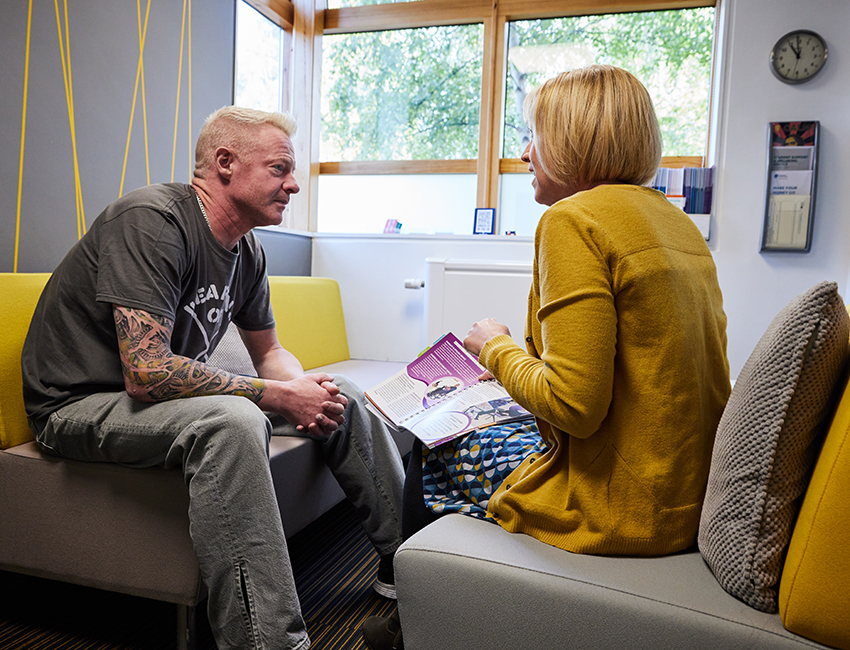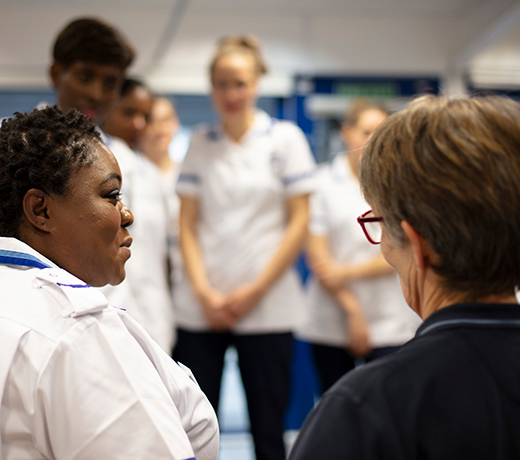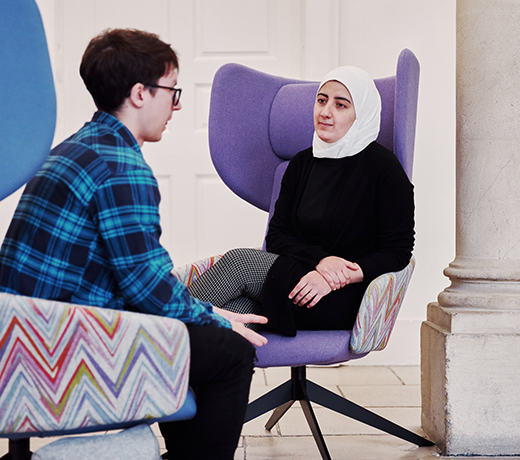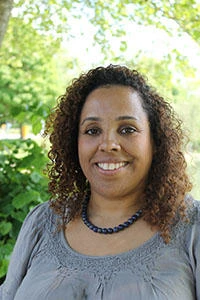At Worcester, you’ll tackle real-world situations, learn from industry professionals and service users, and gain the placement experience you need to be eligible to apply to join the Social Work Register, a requirement to become a practicing social worker in England.
Our Social Work courses are 1st in the UK for graduate prospects
for student satisfaction on our Social Work courses
By completing this course, you’ll be eligible to apply to join the Social Work England register which is a requirement to practice as a social worker in England.
Overview
Created for those who want to make a meaningful difference to communities, families and individuals, our masters combines classroom-based problem-solving with firsthand, placement learning. We’ll develop the valuable skills you need to be a compassionate and solution focussed social worker.
You'll experience simulation workshops where you will practice real-world situations, whilst attending various lectures and seminars. These will be under the guidance of social workers, who have experience in children and families, mental health, youth justice, substance misuse and older adults. Through working with our IMPACT members, you'll have opportunities to learn directly from people with lived experience of health and social care services. You’ll also grapple with important debates and research in social work, such as how social media affects your role and how you can build a positive online identity.
On placement, you’ll put what you’ve learnt into practice and choose the specialist area you want to work in. You might decide to support those with mental illness, people leaving care or those experiencing homelessness. Our expert lecturers and practice educators will support you in delivering effective interventions to those you work with.
Our assessment methods are created to complement your placement choice. You’ll complete essays, case studies, quizzes, presentations and reflective evaluations of your experiences. You’ll also be asked to maintain a professional development journal, a reflective and supportive portfolio for your future career.
By becoming a Worcester Social Work MA student, you’ll choose a masters which works around you. The timetabling of our teaching sessions can be flexible if you have family and work commitments, with our 1-1 lecturer tutorials also bookable at times which suit you. You may become eligible (UK students only) for an NHS bursary which contributes to your tuition and living costs.
Placement
Placement experiences create career ready social workers. At Worcester, you’ll complete 170 days of placement, so you are eligible to apply to join the Social Work England register. We work closely with local authorities (Worcestershire County Council and Herefordshire County Council) alongside private and voluntary sectors, so we can provide opportunities suited to your specific interests.
Our students have had placements at:
- Independent foster agencies
- Children and Family Court Advisory and Support Service (CAFCASS)
- Substance misuse services
- Homeless services
During placement, you’ll be supported by expert lecturers, a Practice Educator and where needed, an onsite supervisor. They’ll help you complete a reflective log during 1-1 conversations and classroom sessions, so you can constantly refer to your experiences, with solutions, when you move into the workplace.
At Worcester, you’ll complete 170 days of placement, starting with 70 days in your first year and progressing to 100 days in your second year.
Course content
On this accredited programme, you’ll learn the skills, theories and policies you need to practice social work. You’ll then apply your knowledge to real-world contexts through simulated learning exercises and professional placements.
Throughout the course, you’ll gain a broad range of experience in the field, with qualified social workers supervising you as you complete a total of 170 days of placement.
All modules are mandatory to ensure your eligibility to apply to join the Social Work England register.
We regularly review our courses to reflect the latest research and developments in the subject area, as well as feedback from students, employers and the wider sector. As a result, modules may change to ensure the course remains current and relevant.
Careers
Our practice-based degree means you’ll encounter a range of real-world experiences in the classroom and on placement, ensuring you are well prepared for life after graduation.
We’ll support you to develop the values, skills and knowledge you need for a wide range of sectors, so you can specialise and make a difference in:
- Children and family services
- Learning disability services
- Adult services
- Mental Health services
You may also decide to become a Practice Educator, so you can teach and supervise our next social work students. You can be trained do this by Worcester and these modules can contribute to qualifications such as the Postgraduate Award in Professional Development: Social Work Practice Education.
Students have progressed to complete additional research, which you can do with Worcester’s Social Work & Social Policy MPhil/PhD.
Social Work MA | Graduate View
Course highlights
Teaching and assessment
Teaching is a mix of interactive seminars, lectures, one-to-one tutorials and practical skills sessions.
Your assessments will help prepare you for a career as a social worker and include writing reflective essays and reports, engaging in group debates, collecting portfolios of evidence and completing skill simulations.
Teaching and assessment contents
You are taught through a combination of interactive lectures, seminars, practical sessions, and work-based learning.
In addition, you will have a Personal Academic Tutor who will remain as a support throughout the programme.
The University places emphasis on enabling you to develop the independent learning capabilities that will equip you for lifelong learning and future employment, as well as academic achievement. A mixture of independent study, teaching and academic support from Student Services and Library Services, and also the Personal Academic Tutoring system will support your success.
Meet the team
You will be taught by a teaching team whose expertise and knowledge are closely matched to the content of the modules on the course.
Entry requirements
2:2 Honours degree or above in a relevant degree
GCSE English Language & Maths grade C/4 or above (or a certifiable equivalent)
Any questions?
If you have any questions about entry requirements, please call our Admissions Office on 01905 855111 or email admissions@worc.ac.uk.
Fees
Fees contents
UK and EU students
The standard tuition fee for full-time UK and EU students enrolling in the academic year 2026/27 is £6,950 per year.
Tuition fees are reviewed annually and may increase each year for both new and continuing students.
For more details, please visit our course fees page.
International students
The standard tuition fee for full-time international students enrolling in the academic year 2026/27 is £14,200 per year.
Tuition fees are reviewed annually and may increase each year for both new and continuing students.
For more details, please visit our course fees page.
Case studies
How to apply
How to apply contents
Applying through UCAS
UCAS is the central organisation through which applications are processed for full-time undergraduate courses in the UK.
Read our how to apply pages for more information on the application process, or if you’d like to apply for part-time study.
Social Work MA - L508
Contact
If you have any questions, please get in touch. We're here to help you every step of the way.

AdmissionsC
admissionsc@worc.ac.uk01905 855111More to explore
Open Days
Visiting us is the best way to get a feel for student life at the University of Worcester.

The City of Worcester
Worcester is a welcoming university city with great transport links and plenty of student parking.

Accommodation
Benefit from our accommodation guarantee. We have rooms on campus to suit every budget including en-suite options.









